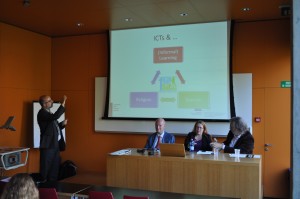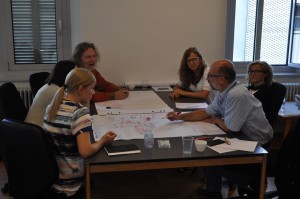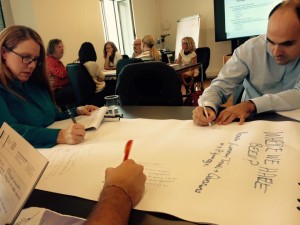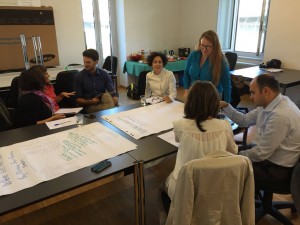September 19, 2015. Tourism is one of the most intense (informal) learning experiences, when the condition of being free FROM daily duties and responsibilities allows to be free TO cultivate own interests and make new experiences. Religion, on its side, represents one the most intimate human dimensions, to cultivate which people are ready to spend great effort. What is and what could be the role of ICT in this area?
The workshop aimed at answering such challenging question, by pursuing two main goals:
- to explore and reflect on a possible research map, by understanding what work has already been done, identifying key-themes, questions and methods, and pointing out exemplar studies and best practices;
- to hypothesize research projects, paths and collaborations
The group of experts took two main approaches:
- a sociological/communication approach, to explore which strategies can be implemented to research the role of ICTs in religious tourism and pilgrimage-related experience(s)
- an engineering approach, to consider which ICTs tools can be designed/prototyped/tested to support and measure such experience(s)
The workshop was preceded by a round table titled “Pilgrims in the digital age”, were three scholars launched the discussion presenting related works:
- Heidi Campbell, director of the Network for New Media, Religion and Digital Culture Studies at the Texas A&M University (USA), focused on the types of research and methods used so far in the field of eReligion, and envisaged future research directions and methodologies
- Massimo Introvigne, director of the Center for Studies on New Religions (CESNUR), Italy – presented how new religious movements arise and grow, and the role of ICT in their diffusion
- Erkki Sutinen – professor at the Department of Computer Science at the University of Eastern Finland – explained how computer science might support and foster research in the area
Experts who participated to the workshop are:
- Asta Adukaite – UNESCO Chair, Università della Svizzera italiana, Lugano, Switzerland
- Heidi Campbell – Texas A&M University, USA
- Lorenzo Cantoni – UNESCO Chair, Università della Svizzera italiana, Lugano, Switzerland
- Stefania Cerutti – University of Eastern Piedmont, Italy
- Elisa Cristina – Casa dei Padri in Armeno, Italy
- Silvia De Ascaniis – UNESCO Chair, Università della Svizzera italiana, Lugano, Switzerland
- Maria Garbelli – University of Bicocca, Milan, Italy
- Giulio Lizzi – RENAULT ITALIA S.p.A., Italy
- Rita Marchetti – University of Perugia, Italy
- Elena Marchiori – webatelier.net, Università della Svizzera italiana, Lugano, Switzerland
- Emanuele Mele – UNESCO Chair, Università della Svizzera italiana, Lugano, Switzerland
- Elisa Piva – University of Eastern Piedmont, Italy
- Erkki Sutinen – University of Turku, Finland
The team is now elaborating a Research Manifesto , which will be made available soon: be prepared!



